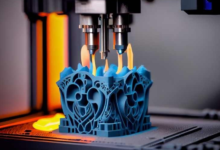What are the new developments in wearable technology, and how are they improving personal health management?

Wearable technology has become a cornerstone of modern health management, revolutionizing how we monitor and manage our personal health. The integration of advanced sensors, enhanced connectivity, and real-time data analysis into wearable devices has paved the way for significant improvements in individual health outcomes and preventative care. This article delves into the new developments in wearable technology and explores how they are improving personal health management.
The Evolution of Wearable Technology: From Fitness Trackers to Health Monitors
Wearable technology has evolved from simple pedometers and fitness trackers to sophisticated health monitoring devices that can detect and analyze multiple health indicators. These devices now incorporate a range of sensors to monitor heart rate, blood pressure, oxygen levels, and even stress markers, providing a comprehensive overview of the wearer’s health in real time.
Advanced Sensors and AI in Wearables: Enhancing Accuracy and Predictive Capabilities
The integration of advanced sensors and artificial intelligence (AI) has significantly enhanced the accuracy and functionality of wearable devices. AI algorithms analyze the data collected by sensors to identify patterns, predict health events, and provide actionable insights. This enables early detection of potential health issues, such as irregular heartbeats or respiratory problems, prompting timely medical intervention.
The Role of Wearables in Chronic Disease Management
For individuals managing chronic conditions like diabetes, heart disease, or asthma, wearable technology offers tools for continuous monitoring and management. Devices designed for specific conditions can track health metrics pertinent to the disease, enabling personalized management plans and reducing the need for frequent doctor visits.
Wearables and Mental Health: Tracking and Improving Emotional Well-being
Recent advancements in wearable technology also include features that support mental and emotional well-being. Devices are now equipped to monitor stress levels, sleep patterns, and even mood changes, helping users manage their mental health more effectively. This holistic approach to health monitoring emphasizes the importance of mental well-being as a component of overall health.
Impact of Wearable Technology on Preventative Health Care
Preventative health care is another area where wearable technology is making a significant impact. By providing continuous health monitoring, wearables encourage proactive health management. Users can receive notifications and alerts for regular physical activity, medication adherence, and other preventative measures, fostering healthier lifestyle choices.
Personalized Health Insights and Tailored Fitness Programs
One of the key benefits of wearable technology is the ability to offer personalized health insights based on real-time data. This customization extends to fitness programs that are tailored to the user’s specific health conditions, fitness levels, and goals, promoting more effective and sustainable health practices.
Integration with Healthcare Systems: Enhancing Patient Care
The data collected by wearable devices can also be integrated with healthcare systems, allowing healthcare providers to access valuable patient data remotely. This integration facilitates better patient monitoring, more accurate diagnostics, and tailored treatment plans, ultimately leading to improved patient outcomes.
The Future of Wearable Technology in Health Management
Looking forward, the potential of wearable technology in health management is vast. Innovations in battery life, miniaturization of components, and enhanced connectivity are expected to make wearables more convenient, accurate, and integral to everyday health management.
Conclusion
The new developments in wearable technology are setting a transformative course for personal health management. With enhanced accuracy, predictive capabilities, and integration with healthcare systems, wearables are not just fitness trackers but vital tools for health management. As technology advances, the scope of what these devices can monitor and manage is expected to broaden, making an even greater impact on individual health and wellness.







